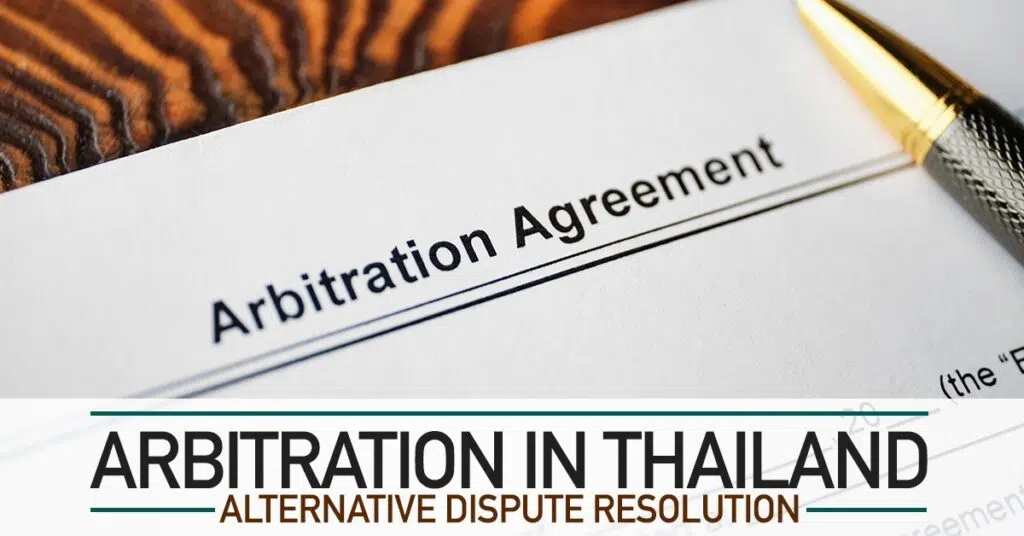Home » Legal Services » Arbitration in Thailand

Arbitration is a widely recognized method of Alternative Dispute Resolution (ADR) that provides a structured yet flexible way to settle disputes without resorting to lengthy court proceedings. It is a voluntary process where parties agree to submit their dispute to one or more arbitrators who will hear both sides and render a binding decision known as an arbitral award. This process is designed to be faster, more efficient, and less formal than traditional litigation, making it a preferred option for resolving commercial and contractual disputes in Thailand.
While both arbitration and mediation are forms of ADR, they differ significantly in their approach and outcome. Mediation involves a neutral third party, known as a mediator, who facilitates discussions between the disputing parties to help them reach a mutually acceptable resolution. However, mediators do not have the authority to impose a decision. If mediation fails, parties may still proceed to arbitration or litigation.
In contrast, arbitration grants the arbitrator(s) the power to make a binding decision after reviewing the evidence and arguments from both sides. Unlike mediation, arbitration leads to a definitive resolution, with the arbitrator issuing an award that is legally enforceable under Thai law.
For arbitration to be a viable dispute resolution method, it is crucial to include an arbitration clause in the contract at the outset of a business relationship. This clause stipulates that any future disputes arising under the contract will be resolved through arbitration rather than through the court system. A well-drafted arbitration clause allows the parties to determine key aspects of the process, including:
Without a pre-agreed arbitration clause, disputes are generally subject to litigation, which may be more costly and time consuming.
An arbitrator is an impartial and independent expert appointed to oversee the arbitration process and deliver a fair resolution. Arbitrators can be legal professionals, business experts or retired judges with specialized knowledge in the subject matter of the dispute. They conduct private hearings, review submissions from both parties, and issue a final decision in the form of an arbitral award.
Arbitrators must remain neutral throughout the process, ensuring that neither party is unfairly advantaged or disadvantaged. Typically, arbitration panels consist of either a single arbitrator for smaller disputes or a panel of three arbitrators for more complex matters.
Parties to a dispute have two primary options for appointing an arbitrator:
Many arbitration institutions within Thailand provide dispute resolution services. Common choices include:
Arbitration is primarily used for resolving civil and commercial disputes that do not involve marital or social status issues. Most common arbitration case based on the agreement disputes. Some of the most common disputes submitted to arbitration in Thailand include:
For businesses and individuals entering into agreements, consulting with an experienced lawyer is highly recommended to ensure that arbitration clauses are properly drafted and tailored to their specific needs. A legal professional can also guide you through the arbitration process, ensuring compliance with Thai law and international arbitration standards.
At Magna Carta Law Firm, our team of lawyers is experienced in handling arbitration cases across various industries. We can assist in drafting and reviewing contracts, representing clients in arbitration proceedings, and providing legal guidance to achieve the best possible resolution for any disputes.
If you require expert legal assistance for arbitration in Thailand, contact us today to discuss your case.

Magna Carta Law Firm website uses cookies. Further details are set out in our Cookies Statement. Necessary cookies (essential to make our website work) are always on. You can adjust your preferences using the 'View preferences' button in the footer of our website.